
Jan Anthonie Bruijn: The world cannot survive without interdisciplinary knowledge
‘Wonder is the beginning of insight. Don’t let that academic curiosity erode.’ This was Jan Anthonie Bruijn’s call to administrators and funding bodies in his valedictory lecture as Professor of Immunopathology, with a particular focus on the kidney.
Speaking at the Academy Building, Bruijn, who also serves as Chair of the Dutch Senate, emphasised how important it is for academics to engage with the public. He explained how knowledge is applied in patient care at the LUMC and passed on through the teaching, and how innovative research is conducted there.
He advocated embedding public engagement in all curricula, including specialist training programmes. ‘As a doctor, researcher and teacher, participating in public debate is essential to achieving your goals – explaining what you do and why, while also looking out for new questions to answer.’
The intersection of science and politics
At the same time, he stressed that the world cannot tackle the challenges it faces without an interdisciplinary approach to knowledge. ‘The many start-ups and scale-ups on our rapidly growing biomedical campus show how the pipeline from fundamental research to large-scale, practical applications is getting better all the time. This is partly due to the so-called triple helix: the intersection of science, government and business within a strong regional context.’
It is no coincidence that the university encourages public engagement through its Recognition and Rewards system and the provision of political leave in the collective labour agreement. This opened many doors for Bruijn himself. ‘Alongside my work as a pathologist, I found myself drawn to the fascinating intersection of science and politics.’
-
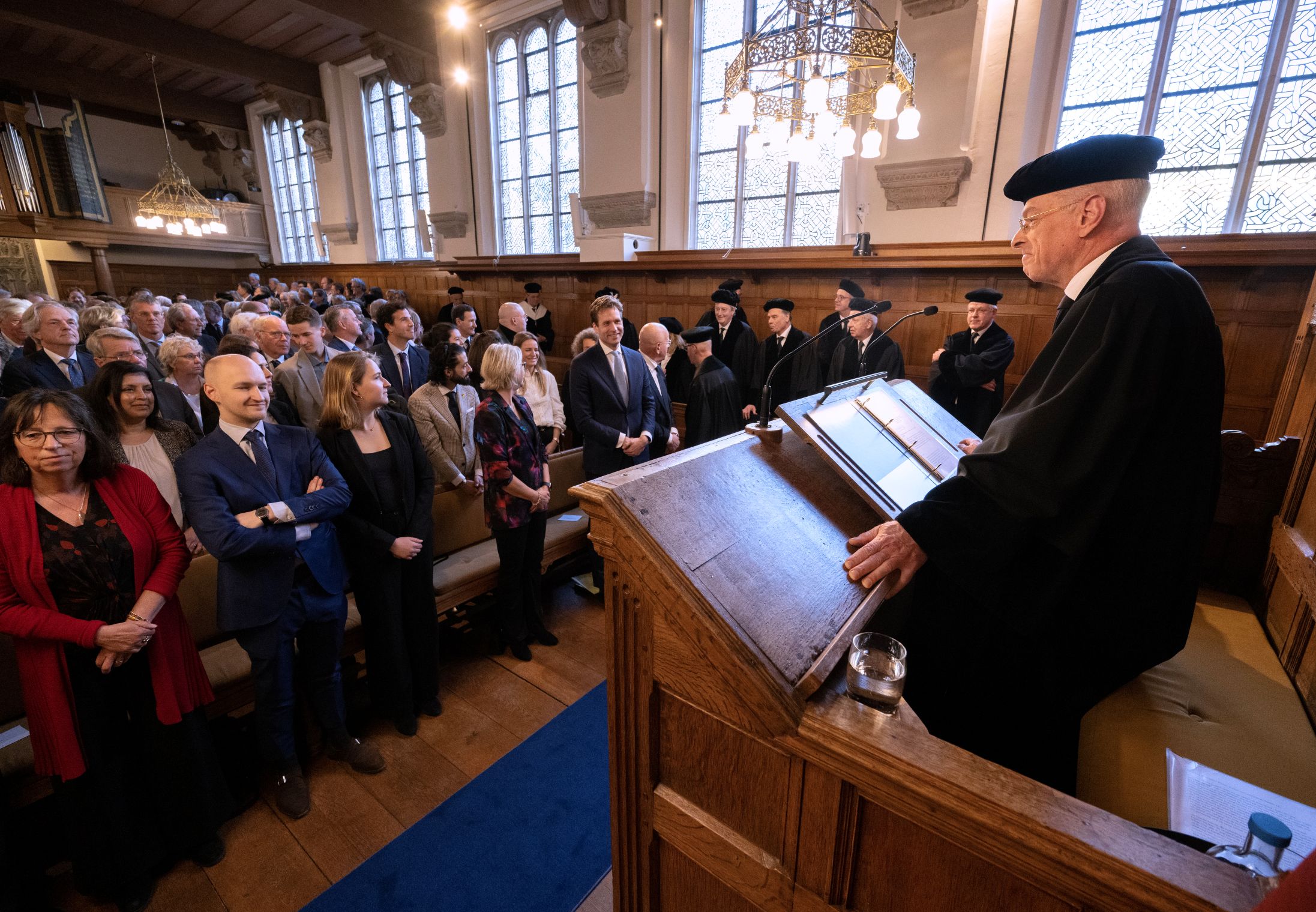
Jan Anthonie Bruijn addresses the room packed with academics and politicians -
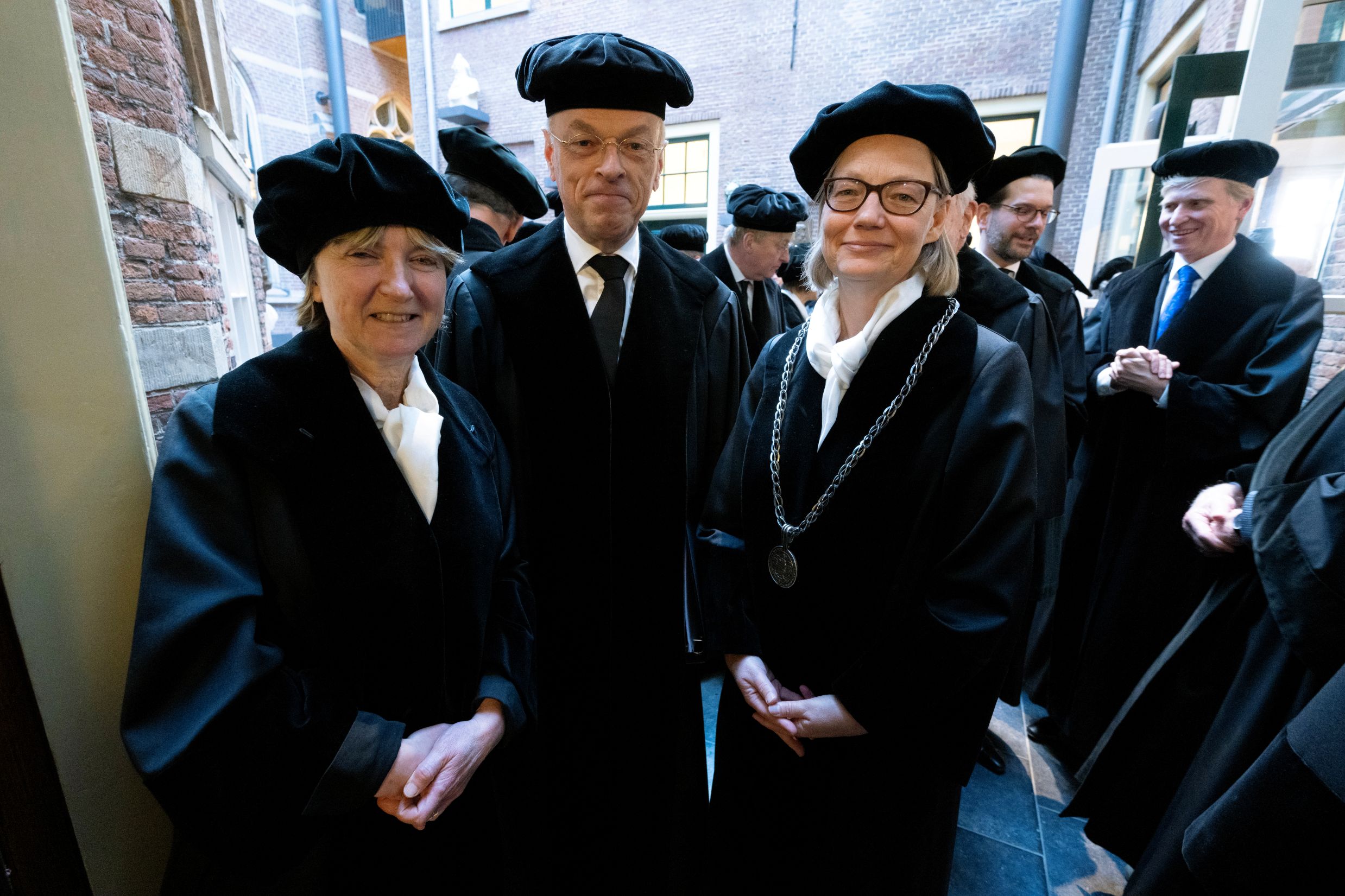
President of the Executive Board, Annetje Ottow, (left) and Rector Magnificus, Hester Bijl, (right) attended Jan Anthonie Bruijn’s (centre) valedictory lecture. -
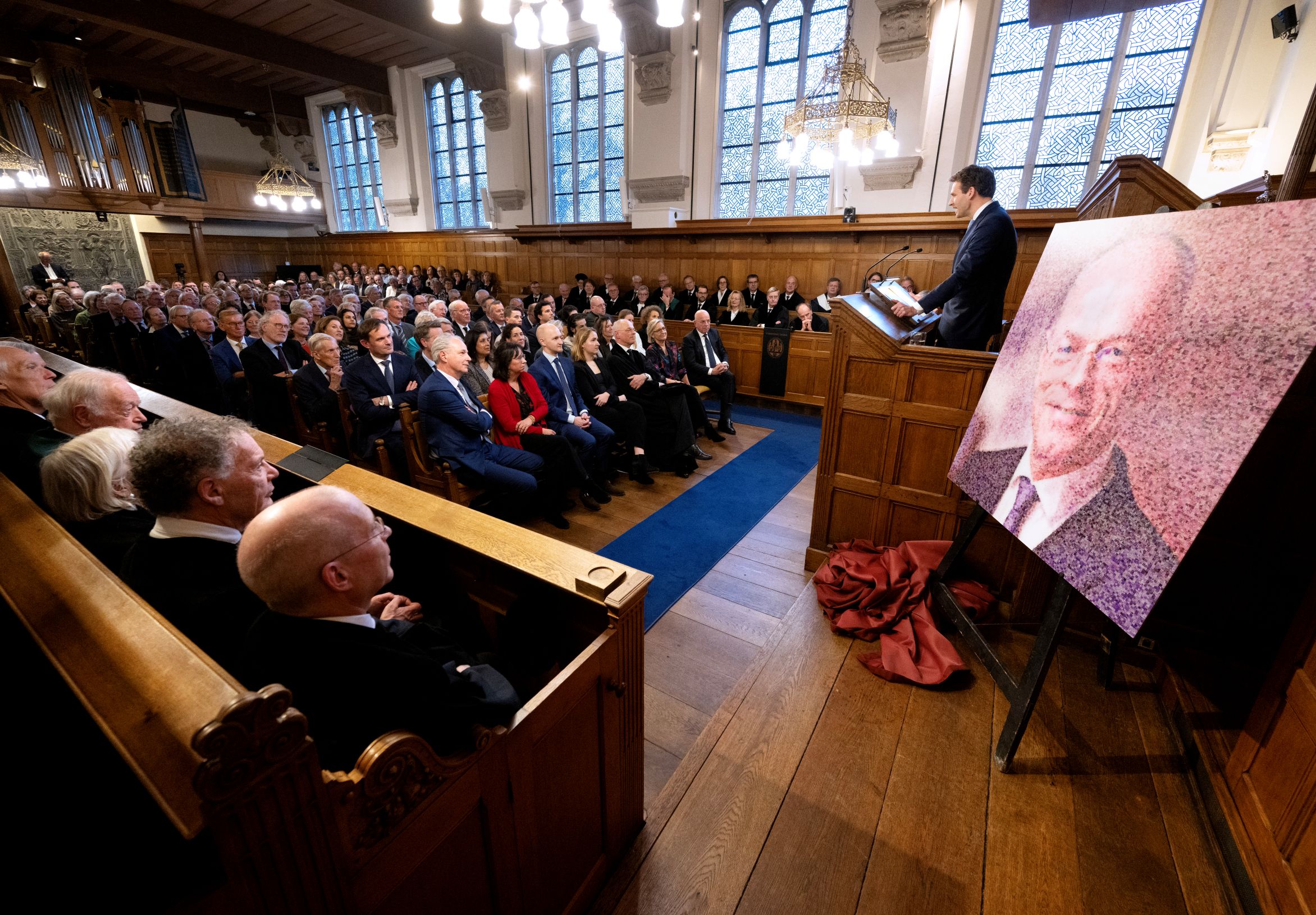
Vincent Karremans (Secretary of State for Youth, Prevention and Sport) also gave a speech. -
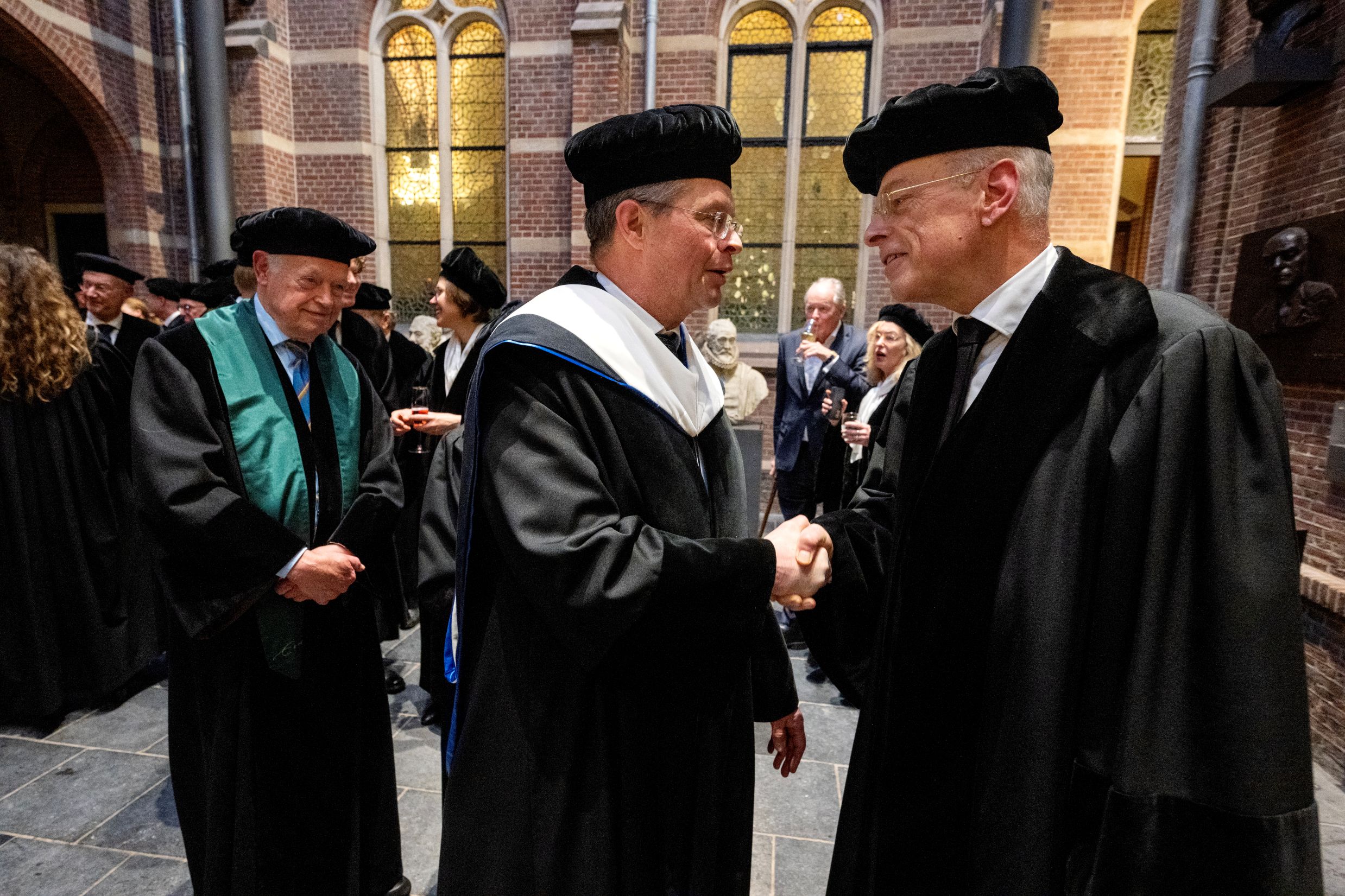
Jan Peter Balkenende and Jan Anthonie Bruijn. -
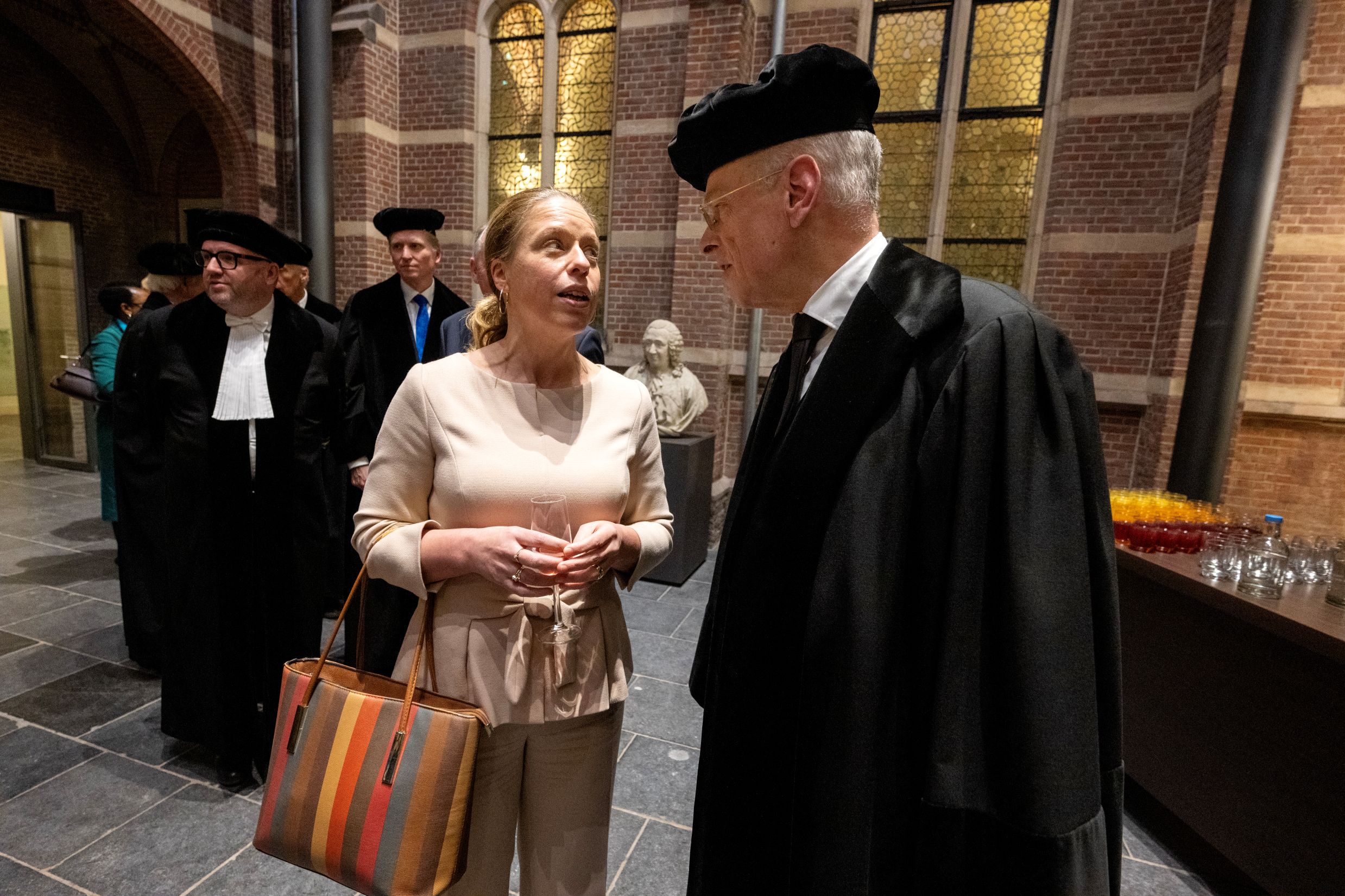
Mayor of Rotterdam, Carola Schouten, and Jan Anthonie Bruijn.
Trust in government
Bruijn highlighted both the similarities and differences between science and public administration. And how, if you zoom in on where they intersect, that relationship is under increasing pressure worldwide. ‘Some politicians use academic knowledge to support their positions, while others question the political independence of academic institutions. Political divides are increasingly falling along these lines.’
Science and policymaking are deeply intertwined in a kind of love-hate relationship, said Bruijn, with more politicians tempted to bypass scientific vetting when formulating their plans. He argued for an independent scientific planning agency for the rule of law, which writers of election manifestos and coalition agreements could consult. ‘We need to strengthen the connection between science and politics in this area as well, to enhance trust in government.’
Commit to the common good
Bruijn concluded with a message for the younger generation. ‘Use your talents for the good of society. Stick your neck out. Engage in public debate and governance. Challenge the status quo, but safeguard both science and democracy. Follow your dreams, but commit to the common good. Then there will be every reason for optimism.’
